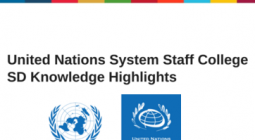Former Mining Exec Details Suitcase Full of Cash He Used to Seal Deals.

A former Glencore director said he used to fly the world carrying a bag full of cash to secure deals for the commodity trader, evidence of the industry’s longstanding history of corruption, a problem it’s still grappling with today.
“I used to go with 500,000 pounds to London,” Paul Wyler who was one of Glencore’s most senior executives and a board director until 2002, said in an interview for The World for Sale, a book on the history of the commodity trading industry.
In those days paying so-called “commissions” was both legal and even tax-deductible for a Swiss company, Wyler said, adding that Glencore’s past as a private company -- it went public in 2011 -- had been helpful. “We had advantages if we wanted to pay commissions. So if we wanted to pay certain things, we didn’t have to declare it in our annual report.”
While Wyler put down his suitcase almost twenty years ago, some of the largest commodity traders face investigations today into alleged wrongdoing in countries from Democratic Republic of Congo to Brazil.
“Unfortunately this is something that has plagued the commodity industry,” Torbjorn Tornqvist, the co-founder of oil trader Gunvor Group Ltd., said of bribery and corruption. “There’s a lot of skeletons and many of them, most of them, will never be surfaced.”
The current range of investigations echoes the early 1980s, when Marc Rich, founder of the company that became Glencore, was indicted for tax evasion and buying oil from Iran in defiance of sanctions. The saga, which brought Rich infamy, has long haunted public perception of the industry.
Glencore, the world’s largest commodity trader, is currently being investigated by authorities in the U.S., U.K., Brazil and Switzerland. The trading house has said the U.S. Department of Justice has requested records dating from 2007 onwards, several years after Wyler left the company.
Trafigura Group, the second-largest metals and oil trader, faces charges in Brazil that it paid kickbacks to win business with the state oil company. Trafigura has denied the allegations. Vitol Group, the largest oil trader, in December admitted to bribing government officials in Brazil, Ecuador and Mexico -- in some instances as recently as July 2020.
Wyler acknowledged the corruption in Glencore’s history, but insisted: “It’s not like that we got the business only because we paid everybody off.”
“In many countries it was just a no-go,” said Wyler, who contemporaries say would probably have become CEO of Glencore if Ivan Glasenberg, the company’s current boss, hadn’t been chosen instead. “You couldn’t pay commissions in Japan, or you couldn’t pay commissions in Chile, or in most of Western Europe it wasn’t really that widespread. In South America, yes... And, yes, in China it was very corrupt.”
A Glencore spokesman declined to comment. The company has previously said that it takes ethics and compliance seriously, and that will cooperate with the investigations into it.
Although largely unknown beyond the world of commodity trading, companies like Glencore, Vitol, Trafigura and Cargill Inc. have become crucial cogs in the global economy, making billions of dollars of profit every year and supplying a large share of the essential goods of modern life, from crude oil to wheat and copper.
Other traders spoke of an industry where conflict has been seen as an opportunity for profit.
Igor Vishnevskiy, the former head of Glencore’s Moscow office, described the company’s successful trades in Tajikistan in the midst of the bloodiest conflict of the disintegration of the Soviet Union in the 1990s: “It was a stunning business, actually, because it was a civil war.”
Many say that the industry, under pressure from investigators and regulators, has changed. Several large trading houses have cut back on their use of agents, the third parties which in some cases were seen as a means for outsourcing bribe-paying.
Tornqvist, the Gunvor CEO whose company was forced to pay $95 million by Swiss prosecutors in 2019 after one of its employees bribed officials in the Republic of the Congo and Ivory Coast to secure oil deals, said: “The old-style traders, the Marc Rich diehard breed, some of them don’t quite get it. Until they’re sitting and talking with the FBI. Then they get it.”
(This story is based on extracts from Blas and Farchy’s book, The World for Sale, to be published tomorrow in the U.K. by Random House Business and by Oxford University Press in the U.S. on March 1.)
24 February 2021
Bloomberg Green



